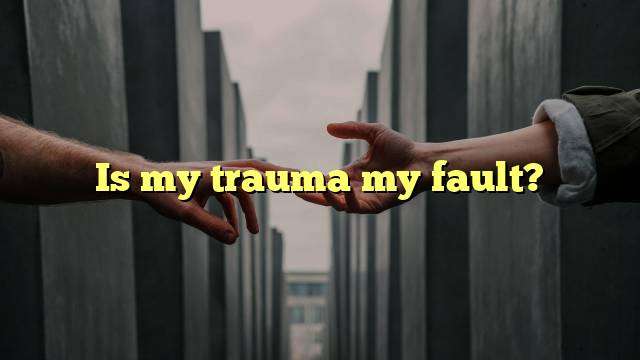Is My Trauma My Fault?
When traumatic events occur, it can be difficult to process the emotions that follow. It can be even harder to understand the cause of the trauma. It is natural to ask ourselves if we are to blame for the trauma we experience. The answer is no. Trauma is not something that one can ask for or deserve. It is often the result of circumstances beyond our control.
Trauma and Its Causes
Trauma is defined as a deeply distressing or disturbing experience. It can be caused by a single event or by a series of events that occur over time. Traumatic events can include physical, emotional, or sexual abuse, natural disasters, witnessing a violent crime, or being a victim of a crime. Trauma can also be caused by accidents, medical procedures, or war. Regardless of the cause, trauma can have a long-lasting and profound effect on an individual’s mental health.
The Impact of Trauma
The impact of trauma can be far-reaching and long-lasting. It can lead to feelings of helplessness, guilt, or shame. It can cause physical symptoms such as headaches, stomachaches, or insomnia. It can also lead to difficulty in relationships, difficulty concentrating, and difficulty trusting others. Post-traumatic stress disorder (PTSD) is a condition that can develop after experiencing a traumatic event. PTSD can involve intrusive thoughts, nightmares, flashbacks, and avoidance of anything that reminds one of the trauma.
Why Trauma Is Not Our Fault
Trauma is not our fault. It is not something that we can control. It is a result of circumstances beyond our control. We cannot control other people’s actions or the events that occur in the world. We cannot control the circumstances that lead to trauma. We can, however, take control of how we respond to the trauma.
Healing from Trauma
The process of healing from trauma is different for everyone. It is important to recognize that healing takes time and requires patience and self-care. It is important to allow yourself to process the emotions that come with the trauma. Talking to a therapist or joining a support group can be helpful in the healing process. It is also important to take care of yourself physically. Exercise, healthy eating, and getting enough sleep can help to reduce stress and increase feelings of wellbeing.
Conclusion
Trauma is not something that we can control or ask for. It is a result of circumstances beyond our control. We cannot blame ourselves for the trauma we experience. Instead, we should focus on healing from the trauma and taking care of ourselves. Taking the time to understand the cause of the trauma and allowing ourselves to process the emotions can help us move forward.
